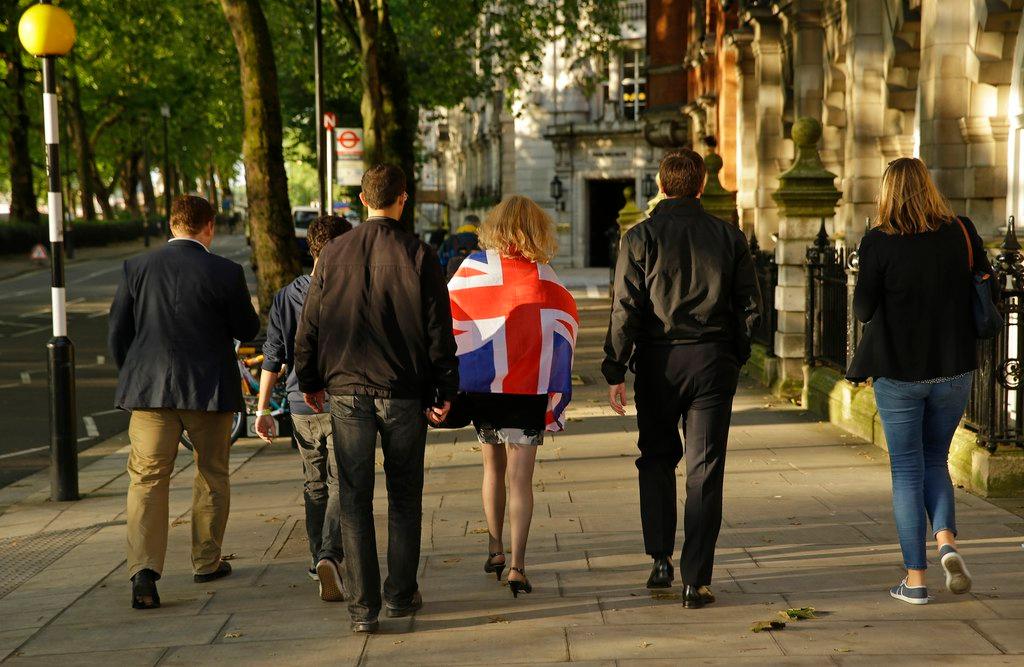
After the Brexit earthquake
This morning, Europe is a different place. The continent's second largest economy, an economy that trades goods and services worth over £500 billion (CHF670 billion) per year with other EU countries, has voted to leave the EU.
The decision will shake the foundations of the EU and usher in an era of great uncertainty.
Facing the leave vote, other EU members will not return to business as usual; talk about a new plan for renewing the EU will be omnipresent. But what are the things the EU can do to regain trust with its citizens?
Fragile narratives
At a fundamental level, those advocating for the EU must find a better response to the question, “Why Europe?”. European integration has always been more than merely a “project”. Yet, its justification has changed over time.

Initially a community established to secure peace, the EU’s major social purposes soon became growth and welfare. Subsequent generations were inclined to take peace and welfare for granted. They valued – but soon came to take for granted, as well – a Europe in which they could move freely, a “European identity” which they could adopt in addition to their national one, and a European cultural and legal regime that provided guarantees for democracy and human rights.
Today, all three grand narratives have become fragile. War has returned to the EU’s borders, the economic crisis looms large, and many citizens share the view that EU institutions suffer from a “democratic deficit”. As a result, EU member states need to demonstrate quickly that they can effectively respond to the most important policy challenges of our times – notably security and immigration.
Balancing unity and diversity
But the EU also needs a new legitimation narrative – a narrative that is credible, that appeals to the basic norms and values held by its diverse citizens, and that unites rather than divides its member states. Without good reasons for individuals to identify with Europe, “leave” campaigns might win elsewhere, too.
European leaders have not just failed to update the European legitimation narrative: they have actively undermined support for Europe by claiming successes for themselves and blaming failures on the EU.

More
Swiss weigh up consequences of Brexit vote
In the long-term, that is not a smart move, and limiting the “blame game” will therefore need to be a part of any attempt to counter widespread EU scepticism. Surely, opposition parties will seek to exploit self-restraint. But who says voters cannot make up their own minds when faced with diverging views?
Does Europe have to look the same in all its various corners? Probably not. But the EU has yet to find a coherent way in which its “variable geometry” – which is already a reality – can become a part of its very identity. It also has to find a way to allow different speeds and levels of integration to co-exist, without undermining the more fundamental rationale of the European integration project.
In the past, the EU has emphasised unity as its rationale. The Brexit sends a strong signal that a new balance will be central in the future. It will require unity in those areas where it is necessary – the EU will need to define and focus on its core business – while embracing diversity in other areas.
The hard choices
Part of what makes the EU strong is that its members are weak, at least on the global scene. As a result, EU members benefit from pooling their power in international negotiations with the US, China and India, or in international forums like the IMF, World Bank or WTO.
Speaking with one voice requires a European foreign policy that is efficiently coordinated and sufficiently ambitious when it comes to the major global issues. With UK voters having decided to leave, the EU will not only become a bit weaker in global affairs, but also more inward-looking in the coming years. This will only add to the high level of introspection that has become characteristic of the EU recently. Finding the right balance between introspection and engagement with a changing world will therefore be a key task for the EU to confront.
Finally, the managerial age in which we live occasionally lets us forget that politics is not so much about “managing”, “governing”, or “steering” the state and its society in the “right direction”; but rather about communities and their leaders making – and justifying as best as they can – difficult choices.
If the EU wishes to be a political force to be reckoned with, its governments will need to learn to collectively make, explain, and implement hard choices. But just as importantly, its citizens will need to engage and identify with the political process – and with each other’s arguments, concerns and emotions – much more than they have done in the past. This requires a strong European public sphere in which genuine political debate can take place among citizens of EU member states – a public sphere we yet have to build.
To be sure, none of these points will be easy to address, and who knows what dynamics the UK vote will trigger in other EU member states before any of them can be addressed in a meaningful way. But at least these points boil down to a simple message: Europe, we need to talk!
The views expressed in this article are solely those of the author, and do not necessarily reflect the views of swissinfo.ch.

In compliance with the JTI standards
More: SWI swissinfo.ch certified by the Journalism Trust Initiative






























You can find an overview of ongoing debates with our journalists here . Please join us!
If you want to start a conversation about a topic raised in this article or want to report factual errors, email us at english@swissinfo.ch.